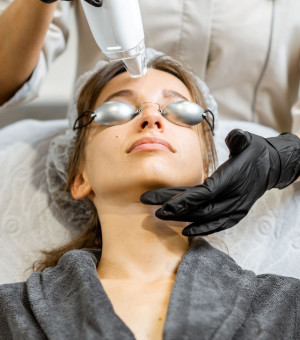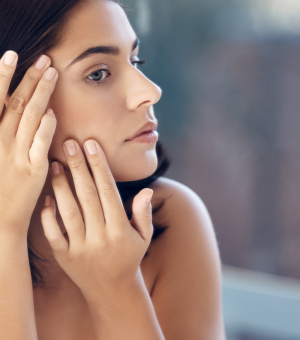What foods can cause acne? Can changes to your diet help acne? The answer is more complicated than a direct link between certain foods and breakouts. But some foods have long been accused of causing worsening acne.
Sugar, dairy, soy, and even some complex B vitamins top the list. But is there definitive evidence that they cause or exacerbate acne?
Scientists believe that the root of these issues likely has more to do with glycemic content. That means blood sugar spikes from high-glycemic foods are the real issue.
What is a low-glycemic diet?
Let’s start by defining high-glycemic foods. These are foods that raise your blood sugar quickly. They include sugary drinks, white bread, fries, and potato chips.
A low-glycemic diet avoids spikes in blood sugar and insulin. It can even help those at risk of developing diabetes or heart disease. Low-glycemic foods include beans, non-starchy vegetables, tropical fruits, steel-cut oats, and brown rice. These foods are filling and don’t cause your blood sugar to rise too quickly.
What the research shows
Researchers around the world have conducted small studies monitoring people with acne as they adopt low-glycemic diets. A weight-loss study in the US incidentally found that most participants reported fewer breakouts when they consumed low-glycemic foods.
Another study discovered that dairy milk might increase the likeliness of acne. But dairy products as a whole haven’t been linked to breakouts. Again, it’s important to note that the existing studies are small and therefore don’t give us enough evidence.
The heart of the issue is the link between blood sugar spikes and inflammation (which dairy and sugar are often singled out for). This inflammation can then cause excess sebum production, which leads to clogged pores and breakouts.
As you can see, the connection between the food you eat and your skin is far from simple cause and effect.




